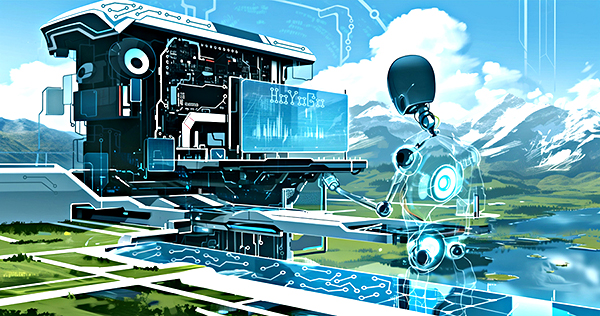The application of artificial intelligence PCBs in the climate and environmental sectors is becoming increasingly significant, especially in areas such as intelligent monitoring, climate forecasting, energy optimization, and environmental protection technologies. Below are some specific application areas:

1. Intelligent Climate Monitoring
Artificial intelligence PCB can be integrated into climate monitoring systems to collect and analyze data in real time, such as temperature, humidity, air quality, wind speed, and carbon dioxide concentration. These PCBs can connect with sensors, data acquisition devices, and communication modules, processing vast meteorological data through AI algorithms to provide more efficient and accurate support for climate change forecasting. They can operate stably under extreme weather conditions, providing crucial data to support weather forecasts, disaster warnings, and environmental protection measures.
2. Energy Management and Optimization
Artificial intelligence PCB plays a critical role in smart grids and renewable energy fields. By analyzing data from solar, wind, and other energy sources, AI PCB can optimize energy distribution and use to maximize efficiency. For example, in solar power systems, AI PCBs can adjust battery storage strategies based on weather forecasts and electricity demand, ensuring the stability of power supply. Similarly, they can optimize power transmission and usage, reduce energy waste, and promote environmentally friendly energy management.
3. Environmental Monitoring and Pollution Control
Artificial intelligence PCB can be integrated into environmental monitoring devices to detect environmental pollutants such as air, water quality, soil and noise in real time. With built-in AI processing capabilities, these AI PCBs can automatically identify pollution sources and take appropriate actions, such as activating filtration systems or notifying relevant personnel for intervention. Additionally, AI PCBs can play a role in waste sorting and resource recycling, recognizing and categorizing waste through intelligent sorting systems, optimizing the recycling process, and reducing negative environmental impacts.
4. Smart Agriculture
The application of artificial intelligence PCB in agriculture can significantly improve environmental protection efficiency. Smart agricultural systems can use these PCBs to monitor soil moisture, plant health, and climate changes, optimizing irrigation, fertilization, and pest control strategies through AI technology, reducing water and fertilizer waste, and minimizing environmental pollution.
5. Carbon Emission Monitoring and Control
Artificial intelligence PCB can also be integrated into carbon emission monitoring systems to analyze carbon footprint data from industrial emissions, transportation, and other sectors in real-time. Through precise data analysis, AI PCBs help businesses and governments formulate emission reduction strategies, meet stricter environmental standards, and contribute to achieving carbon neutrality goals.
6. Waste Management and Resource Reuse
In waste management systems, AI PCBs optimize the recycling and reuse process by monitoring operations in landfills, incineration plants, and other waste treatment facilities. These PCBs use AI algorithms to identify recyclable resources and determine what should be discarded, minimizing waste accumulation and reducing environmental pollution.
These applications demonstrate that AI PCBs not only provide intelligent support for environmental technologies but also drive global efforts in addressing climate change and environmental protection by improving energy efficiency, optimizing resource management, and reducing pollutant emissions.
HoYoGo is an international, professional and reliable artificial intelligence PCB manufacturer. Driven by the current wave of digitalization, the speed of technology iteration has significantly accelerated, and there has been a rapid growth in demand for artificial intelligence. As a result, the market has put forward higher requirements for the quality and performance of PCB products. This not only enriches our product range but also further enhances the flexibility of our team in serving customers.
Our quality management will continue to be guided by high standards. In the fourth quarter, Mr. Dong will further strengthen the team's execution and explicitly require all colleagues to adhere to the goal of "everyone working in a standardized manner to ensure a one-time pass rate of 98%."
At the same time, we are committed to improving the professional skills of our operators and ensuring that we always lead the industry in quality management and customer service through continuous improvement and innovation. If you have any related needs, you are welcome to send us your inquiries.